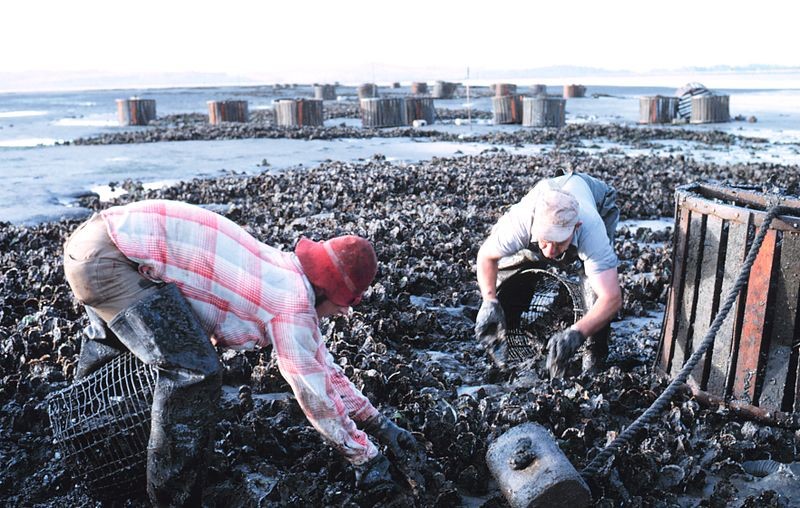Samantha Fairbanks and Alex Sadzewicz are students at the University of Maryland Francis K. Carey School of Law. Nathan McMullen and Mariah Campbell are students at the University of Maryland College Park. They are all guest contributors to this blog.
School may be out for summer, but Congress is busy with hearings related to the 2023 Farm Bill. This post is focused on hearings held from June 14-June 23, 2022, on challenges facing Arkansas farmers, nutrition programs, climate research, the dairy industry, and the role of digital asset regulation in agriculture.
On June 17, the Senate Committee on Agriculture, Nutrition, and Forestry held a hearing on challenges facing agriculture in Arkansas entitled “2023 Farm Bill: Perspectives from the Natural State.”
Among the eleven witnesses, many communicated a concern that rural America is at a systemic disadvantage and being left behind, citing shortcomings in the crop insurance program, application periods, and general accessibility issues for federal programs. In light of the global pandemic and food shortages, multiple farmers representing the soybean, cotton, and specialty crop industry are seeking revenue protection and accessible crop insurance that producers can tailor to their risk management needs. Further, many rural Arkansas counties are still without adequate broadband internet. Witnesses advocated for a technologically neutral approach that recognizes the cost-prohibitive nature of a fiber-only system, which may leave many rural Americans with insufficient broadband while others are upgraded. Chairwoman Stabenow emphasized that “the farm bill is much more than just support for our farmers . . . [it’s] quality of life.”
On June 14, the House Agriculture Committee held a hearing entitled “A 2022 Review of the Farm Bill: Stakeholder Perspectives on Non-SNAP USDA Nutrition Programs.” The discussion centered around how the farm bill can strengthen nutrition programs, as well as the successes and failures of federal programs over the course of the COVID-19 pandemic. Witnesses brought valuable testimony informed by their own experiences with a suite of federal nutrition assistance programs.
Central to the discussion was increasing spending on the Emergency Food Assistance Program, or TEFAP. During the height of the pandemic, TEFAP dollars were essential for food banks responding to increased demand. Mr. Waide, of the Atlanta Community Food Bank in his testimony recommended an additional $450 million in TEFAP spending. In his closing statements, the Committee Chair, Mr. Scott, voiced his support for increased TEFAP funding, citing the current inflation of food and fuel prices, as well as increasing food insecurity in vulnerable populations.
To read more about recommendations for how the farm bill can strengthen federal nutrition programs, check out the FBLE Food Access and Nutrition Report.
On June 15, the House Agriculture Committee held a hearing entitled “The Role of Climate Research in Supporting Agricultural Resiliency.” The witnesses emphasized five research funding objectives for the 2023 farm bill: organic farming, open access to research data, 1890-land grant institutions, carbon sequestration, and public land grazing rights. Although many representatives responded enthusiastically to advancing climate change research, some were apprehensive about potential negative economic impacts caused by conservation efforts.
On June 22, the House Agriculture Committee held a hearing entitled “A 2022 Review of the Farm Bill: Dairy Provisions.” The two panels of witnesses for this hearing—representatives from the USDA and industry—discussed USDA safety net programs, mainly highlighting the Dairy Margin Coverage Program (DMC). This program was created by the 2018 Farm Bill and the witnesses advocated for increased enrollment in the program, as well as making Supplemental DMC permanent—allowing farmers to update their milk production in the program. Industry witnesses agreed with several Representatives that the capped weight for DMC coverage should be raised above 5 million pounds to incentivize participation.
The witnesses discussed the negative impacts of inflation, supply-chain issues, and lack of technical support, particularly on smaller dairies. Chairman Scott’s closing remarks underscored that “there is no greater issue we need to tackle than preserving the foundation of our agriculture system…the small family farm.”
On June 23, the House Agriculture Committee held a hearing entitled “The Future of Digital Asset Regulation” centered around regulating digital commodities and cryptocurrency and how best to create an environment where they become an important financial product and drive innovations in the current system. Blockchain technology is a trillion dollar industry rivaling the internet. The hearing can be found on the House Agriculture Committee calendar.
The views and opinions expressed on the FBLE Blog are those of the authors and do not necessarily reflect the official policy or position of FBLE. While we review posts for accuracy, we cannot guarantee the reliability and completeness of any legal analysis presented; posts on this Blog do not constitute legal advice. If you discover an error, please reach out to contact@farmbilllaw.org.


